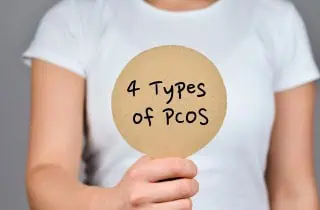
Were you told you have polycystic ovary syndrome or PCOS based on a pelvic ultrasound? That may or may not be an accurate diagnosis because PCOS cannot actually be diagnosed or ruled out with ultrasound.
In episode three of my podcast/YouTube video, I discuss PCOS including topics such as: why PCOS is an umbrella term, the difference between polycystic ovaries and ovarian cysts, and why some women with undereating and endometriosis are being mistakenly told they have PCOS.
 Endometriosis is not a hormonal condition. It’s affected by estrogen but is not caused by estrogen or “estrogen dominance.”
Endometriosis is not a hormonal condition. It’s affected by estrogen but is not caused by estrogen or “estrogen dominance.”
